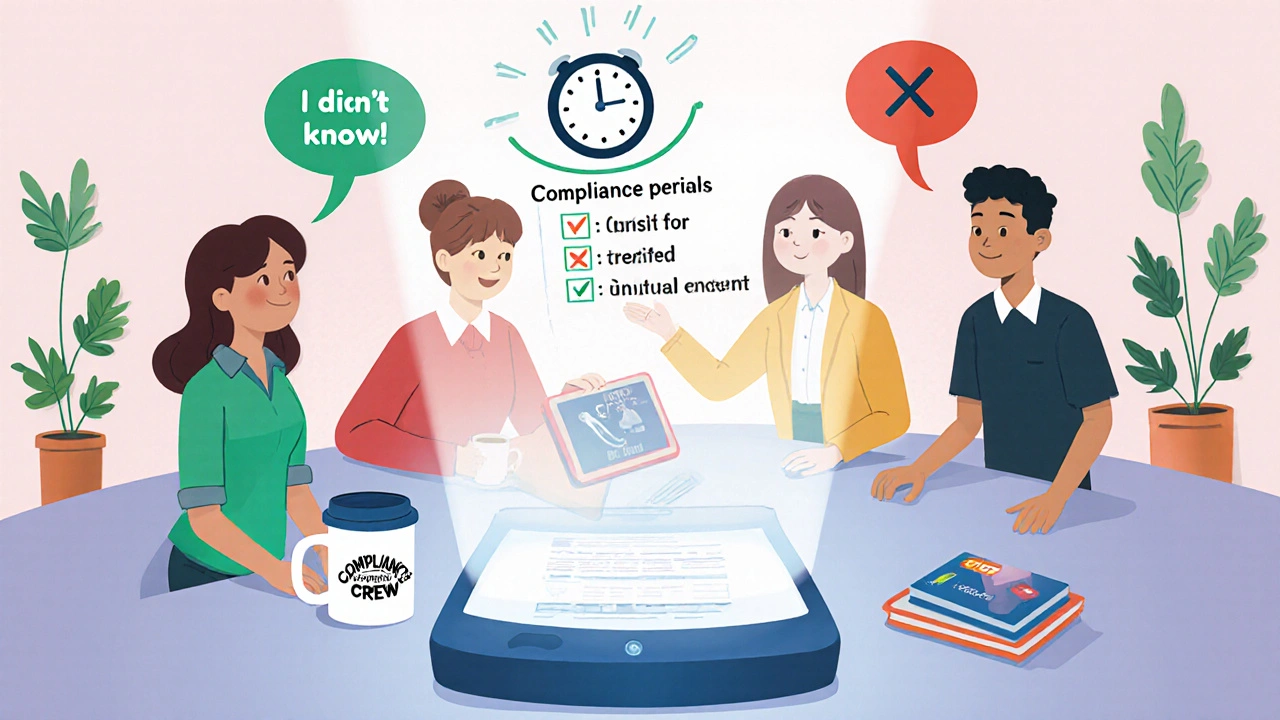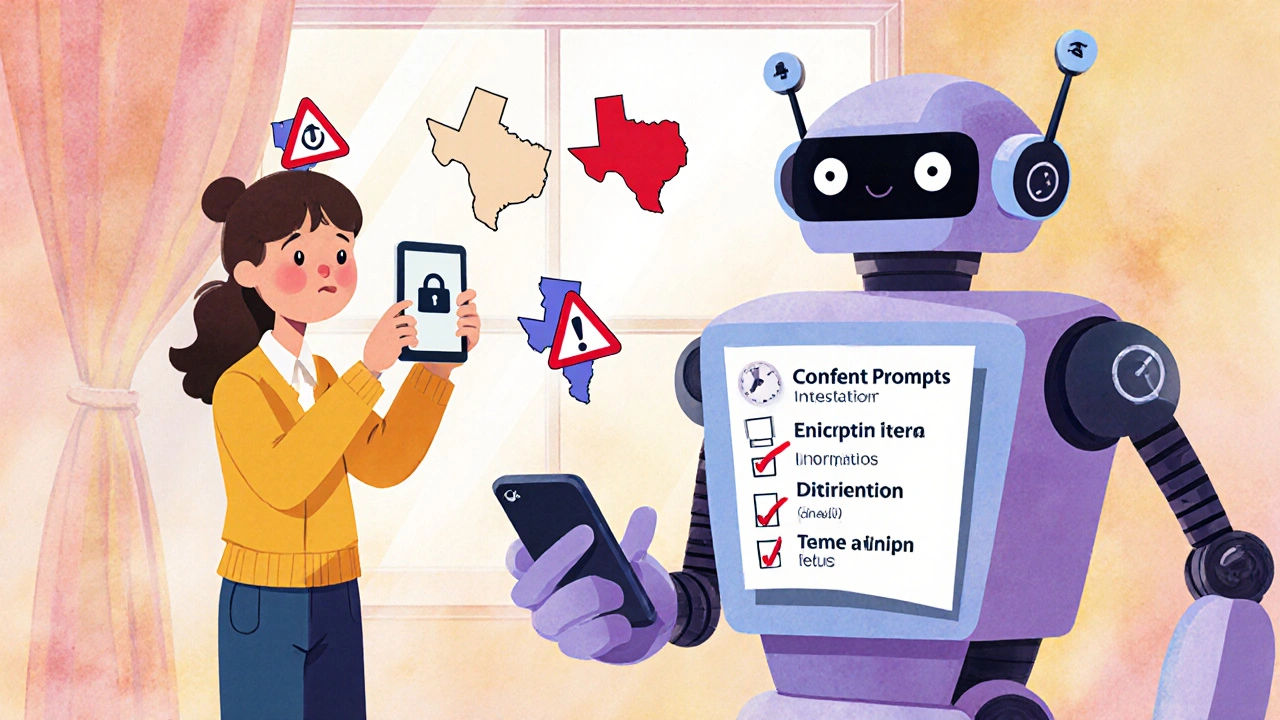Small businesses using VoIP systems are being targeted by regulators like never before. It’s not just about picking a cheap phone service anymore. If you’re recording calls, even for customer service or training, you could be breaking the law - and facing fines up to $10,000 per violation. The FCC, state attorneys general, and industry watchdogs are cracking down hard, and most SMBs have no idea they’re at risk. In 2025, compliance isn’t optional. It’s the price of staying open.
One-Party vs. Two-Party Consent: Where You Are Matters More Than You Think
The federal rule says you only need one person’s consent to record a call - that’s you. But 12 states don’t care what the FCC says. California, Florida, Illinois, Maryland, Massachusetts, Montana, New Hampshire, Pennsylvania, Washington, and others require all parties to agree. That means if you’re based in California but take calls from someone in Texas, you still need consent from the Texas caller. No exceptions.
Many SMBs assume their VoIP provider handles this. Wrong. Providers like RingCentral or Vonage may offer default settings, but those defaults often violate state laws. A Trustpilot review from February 2025 details a business hit with a $12,000 fine because their system didn’t prompt callers for consent in California. The provider didn’t warn them. The business paid.
Here’s how to fix it: Use an IVR system that plays a clear, automated message at the start of every call: “This call may be recorded for quality purposes. By continuing, you consent to this recording.” Record the timestamp of when consent was given - and store that log separately from the audio file. Don’t rely on silence or implied consent. Courts are siding with customers who say they didn’t know they were being recorded.
Healthcare and Finance? You’re Under a Microscope
If your SMB handles patient data, you’re under HIPAA. That means more than just consent. You need encryption (AES-256 minimum), Business Associate Agreements (BAAs) with your VoIP provider, and patient authorizations that expire every three years. HHS OCR audits are up 67% in 2025. One small clinic in Oregon lost its license after a patient’s recorded conversation was stored unencrypted on a shared drive.
For financial services, PCI-DSS is the real killer. If a customer gives you their credit card number over the phone, you can’t store the full card number, CVV, or PIN block in the recording. Even if you think you’re “just keeping it for fraud review,” you’re violating Rule 12.9. Fines hit $500,000 per incident. A bakery in Chicago got hit for keeping a recording of a customer’s card details for 14 months. They didn’t know it was illegal. They paid $210,000.
And don’t forget TCPA. If you use automated calls or texts - even for appointment reminders - you need written, verifiable consent. No more pre-checked boxes on websites. No more “by using our service, you agree.” You need a signed form, an e-signature, or a recorded verbal confirmation with a timestamp. 89% of TCPA lawsuits against SMBs in 2024 failed because consent records were missing or unclear.
How Long Should You Keep Recordings? It’s Not Simple
You can’t just keep everything forever. You also can’t delete everything after a week. The rules change based on who you are and where you operate.
- FCC requires call detail records (not audio) to be kept for 18 months.
- FINRA requires financial firms to keep recordings of securities transactions for 3 years.
- California’s CCPA now demands 2 years for general business calls, but 7 years if the call involves healthcare data.
- HIPAA requires patient authorization documents to be kept for 6 years after the last date they were effective.
- PCI-DSS says if you accidentally capture card data in a recording, you must delete it within 24 hours - unless it’s needed for fraud investigation.
That’s the problem. A single call might trigger three different retention rules. Most SMBs don’t have systems to handle this. A TeleCloud survey found 73% of SMBs either deleted records too early or kept them too long - both are violations. The fix? Use software that auto-tags recordings by type (e.g., “HIPAA,” “PCI,” “General”) and sets automatic deletion dates. Don’t try to do this manually. You’ll mess it up.

What Your VoIP System Must Have
Not all VoIP services are built the same. If your system doesn’t have these features, you’re playing Russian roulette with compliance:
- Automated consent prompts - Must play before the call connects. No exceptions.
- Timestamped consent logs - Stored separately from audio. Must include date, time, caller number, and consent method.
- AES-256 encryption - For recordings at rest and in transit. Unencrypted files are a legal liability.
- Role-based access - Only HR, compliance officers, or auditors should be able to listen to recordings. Sales reps shouldn’t have access unless they’re involved in the call.
- STIR/SHAKEN authentication - Required by FCC since 2021. Prevents spoofed calls. Most providers have this now, but check.
Expect to pay $2,500-$8,000 upfront to upgrade your system if you’re on an older platform. Monthly maintenance runs $150-$400. That’s cheaper than one fine.
Training and Documentation Are Non-Negotiable
Employees need to know the rules. Not just the sales team. The receptionist, the bookkeeper, the intern - anyone who answers the phone. The International Association of Privacy Professionals says SMB staff now need 8-12 hours of compliance training per year. That’s up from 4-6 hours in 2023.
And you need written policies. Not just a PDF buried on a server. A living document that says:
- When we record calls
- How we get consent
- How long we keep recordings
- Who can access them
- How we delete them
During an audit, regulators don’t ask if you knew the rules. They ask: “Do you have it in writing?” If you don’t, you’re guilty.

AI and Voice Cloning Are Changing the Game
The FCC’s January 2025 guidance made it clear: AI-generated voice messages - like chatbots calling to confirm appointments - need the same consent as human agents. If your system uses synthetic voices to remind customers about payments, you need explicit opt-in. No shortcuts.
And now, states like Texas and New York are considering laws that require biometric consent for voice recordings. Why? Because AI can clone a voice. If someone records your employee saying “I authorize this payment,” a hacker could use that to trick your bank. Your recordings aren’t just data - they’re biometric keys.
What Happens If You Get Caught?
Fines are just the start. Your VoIP provider can shut off your service. Your insurance might deny coverage. And class-action lawsuits are rising. In March 2025, a small dental practice in Florida settled for $45,000 after failing to document consent for automated reminders. The caller didn’t know they were being recorded. The practice didn’t have a log. They lost.
On the flip side, businesses that take compliance seriously are winning. A Capterra review from April 2025 praised a VoIP provider for automatically managing retention and consent: “We passed a HIPAA audit with zero findings. Our clients trust us more.” That’s not luck. That’s strategy.
What You Should Do Right Now
Here’s your checklist - do this in the next 7 days:
- Check your VoIP provider’s settings. Are consent prompts enabled? Are they turned on for every state you call?
- Review your call recordings. Do any contain full credit card numbers, CVVs, or patient health info? If yes, delete them immediately.
- Start logging consent separately from audio. Use a spreadsheet or compliance tool. Timestamps are mandatory.
- Write a one-page policy on call recording, consent, and retention. Have your team sign it.
- Train everyone who answers the phone. Even if they’ve been there five years.
Compliance isn’t about fear. It’s about trust. Customers are more likely to do business with companies that protect their privacy. And regulators? They’re not going away. The FCC’s 2025 budget includes a 22% increase in enforcement staff. They’re coming for SMBs. Be ready.
Do I need consent to record calls if I’m in a one-party state?
Yes - if the caller is in a two-party state. Federal law lets you record with one-party consent, but state laws override that. If you’re based in Texas but take a call from someone in California, you need consent from the California caller. Always assume the strictest rule applies.
Can my VoIP provider handle compliance for me?
Some can, but don’t assume they do. Many providers offer compliance features as add-ons - not defaults. Check your contract. Ask for documentation showing how consent is captured, how long recordings are stored, and how data is encrypted. If they can’t give you a clear answer, switch providers.
What if I only record internal calls?
You still need consent. Even if it’s between two employees, recording without consent can violate state wiretapping laws. Plus, if a customer later calls and you play back an internal recording to resolve their issue, you’ve turned it into a customer call - and now you’re exposed to TCPA and HIPAA rules. Always treat every recording as if it involves a customer.
How do I know if my recordings are encrypted properly?
Ask your provider: “Do you use AES-256 encryption for recordings at rest and in transit?” If they say “yes” but can’t show you the technical specs, ask for a third-party audit report. Unencrypted files are the #1 reason for data breach penalties under HIPAA and GDPR.
What’s the cheapest way to become compliant?
Start with free tools: Use Google Forms or DocuSign to get written consent for automated calls. Use a simple spreadsheet to log consent timestamps. Upgrade your VoIP system only if you handle payment or health data. But don’t skip documentation. The cost of one fine is 10x the cost of a compliance tool.
Do I need to record consent for SMS messages too?
Yes. Under the 10DLC framework, you must register every SMS campaign with The Campaign Registry and get explicit opt-in consent. This applies to appointment reminders, promotions, or alerts. Texting without consent can trigger TCPA lawsuits - even if you’re not recording the call.
Can I use AI to automate compliance?
Yes - and you should. AI tools can automatically detect when a recording contains credit card numbers or PHI and flag or delete them. They can also verify consent timestamps and generate audit reports. A 2025 TeleCloud report showed SMBs using AI compliance tools reduced violations by 63%. It’s not a luxury. It’s a necessity.
